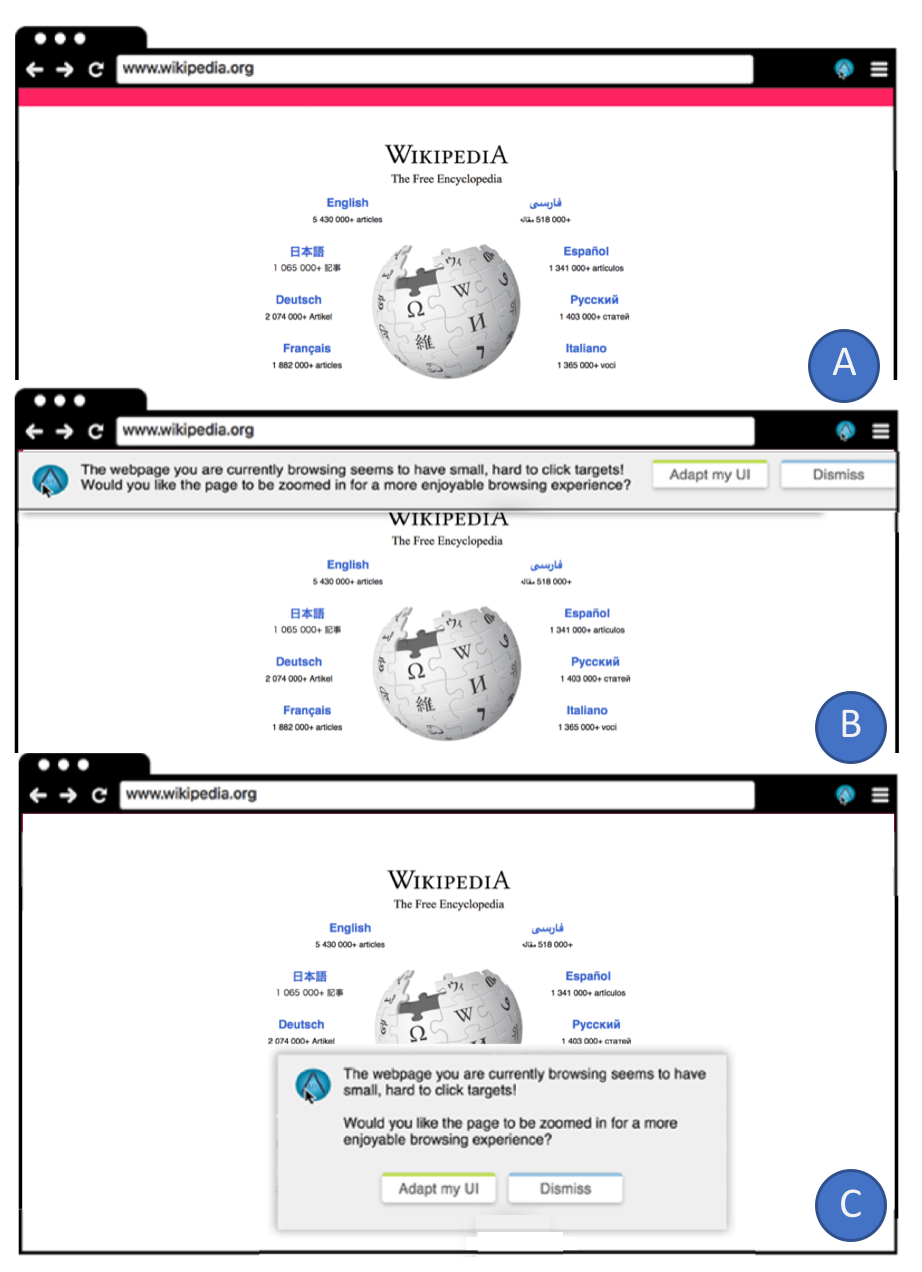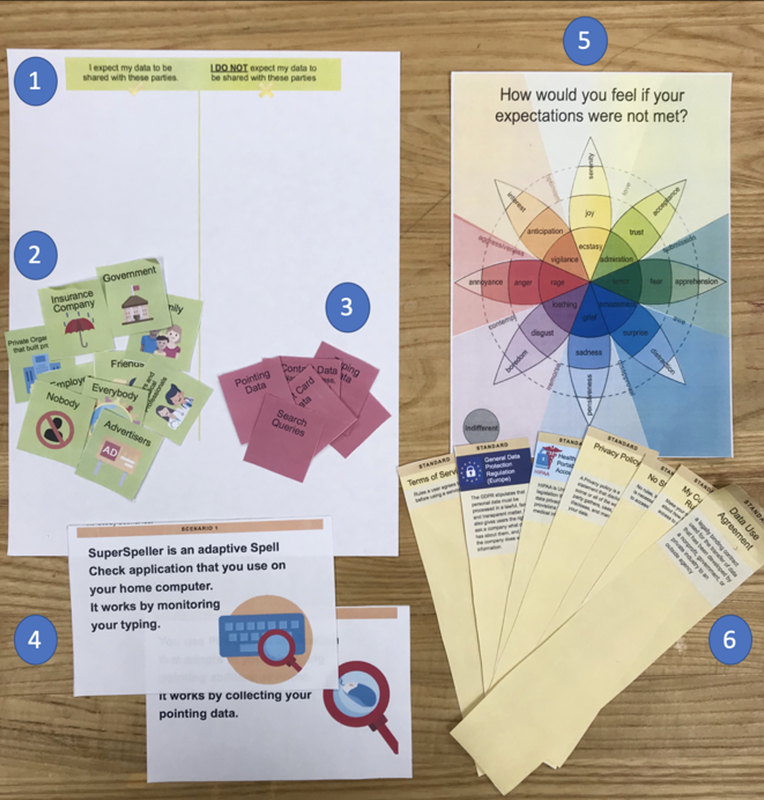Understanding Privacy Perspectives of Vulnerable End-Users
|
Adaptive and personalized technologies that monitor collect, analyze and react to user data are becoming prevalent. These technologies can benefit different vulnerable populations, including people with disabilities. Despite their potential, these technologies might also expose users to privacy threats.
We have developed a participatory activities toolkit that can be used to elicit the privacy preferences of non-technical end-users towards the privacy characteristics of adaptive technologies, including assistive technologies that support pointing and typing, and communication and coordination technologies. We have used the toolkit in interview studies with older adults and youth and found it effective in eliciting detailed privacy perspectives and expectations. |
Relevant Publications:
Hamidi, F., Poneres, K., Massey, A., and Hurst, A. 2020. Using a participatory activities toolkit to elicit privacy expectations of adaptive assistive technologies. In Proceedings of the 17th International Web for All Conference (W4A ’20). Association for Computing Machinery, New York, NY, USA, Article 17, 1–12.
Hamidi, F., Poneres, K., Massey, A., Hurst, A. Who Should Have Access to my Pointing Data? Privacy Tradeoffs of Adaptive Assistive Technologies. Proceedings of the 20th International ACM SIGACCESS Conference on Computers and Accessibility, 203-216, New York: ACM.
Martin-Hammond, A, Ali, A., Hornback, C., and Hurst, A. Understanding Design Considerations for Adaptive User Interfaces for accessible Pointing with Older and Younger Adults. Proceedings of the 12th Web for All Conference, 2015, 63-64, New York: ACM. Available Online.
Hamidi, F., Baljko, M., Ecomomopoulos, C., Livingston, N., Spalteholz, L. G. Co-designing a speech interface for people with dysarthria. Journal of Assistive Technologies, 9(3), 2015, 159-173. Available online.
Hamidi, F., Poneres, K., Massey, A., and Hurst, A. 2020. Using a participatory activities toolkit to elicit privacy expectations of adaptive assistive technologies. In Proceedings of the 17th International Web for All Conference (W4A ’20). Association for Computing Machinery, New York, NY, USA, Article 17, 1–12.
Hamidi, F., Poneres, K., Massey, A., Hurst, A. Who Should Have Access to my Pointing Data? Privacy Tradeoffs of Adaptive Assistive Technologies. Proceedings of the 20th International ACM SIGACCESS Conference on Computers and Accessibility, 203-216, New York: ACM.
Martin-Hammond, A, Ali, A., Hornback, C., and Hurst, A. Understanding Design Considerations for Adaptive User Interfaces for accessible Pointing with Older and Younger Adults. Proceedings of the 12th Web for All Conference, 2015, 63-64, New York: ACM. Available Online.
Hamidi, F., Baljko, M., Ecomomopoulos, C., Livingston, N., Spalteholz, L. G. Co-designing a speech interface for people with dysarthria. Journal of Assistive Technologies, 9(3), 2015, 159-173. Available online.


